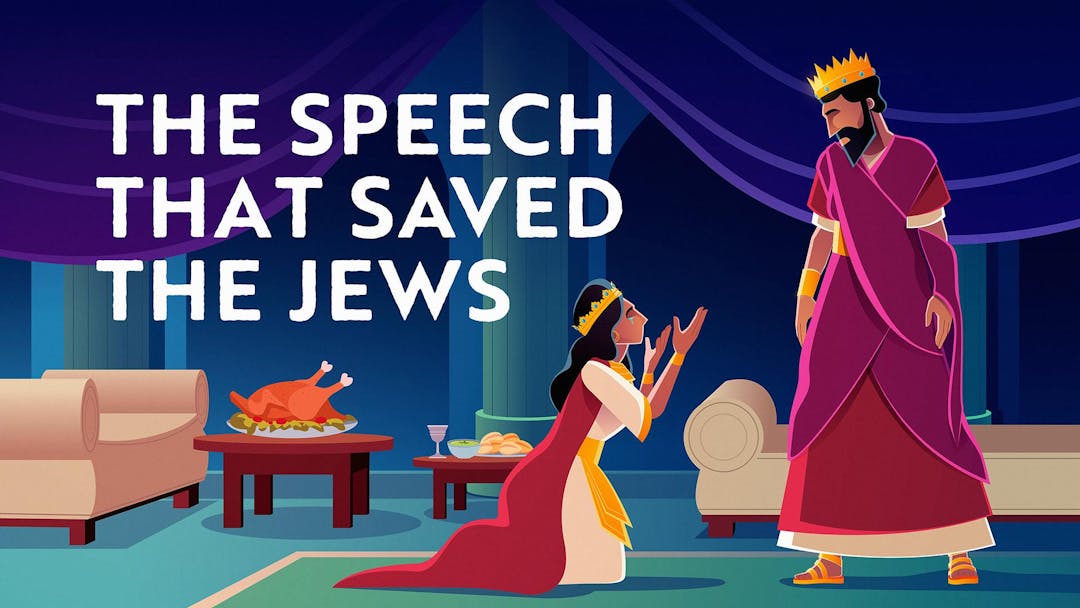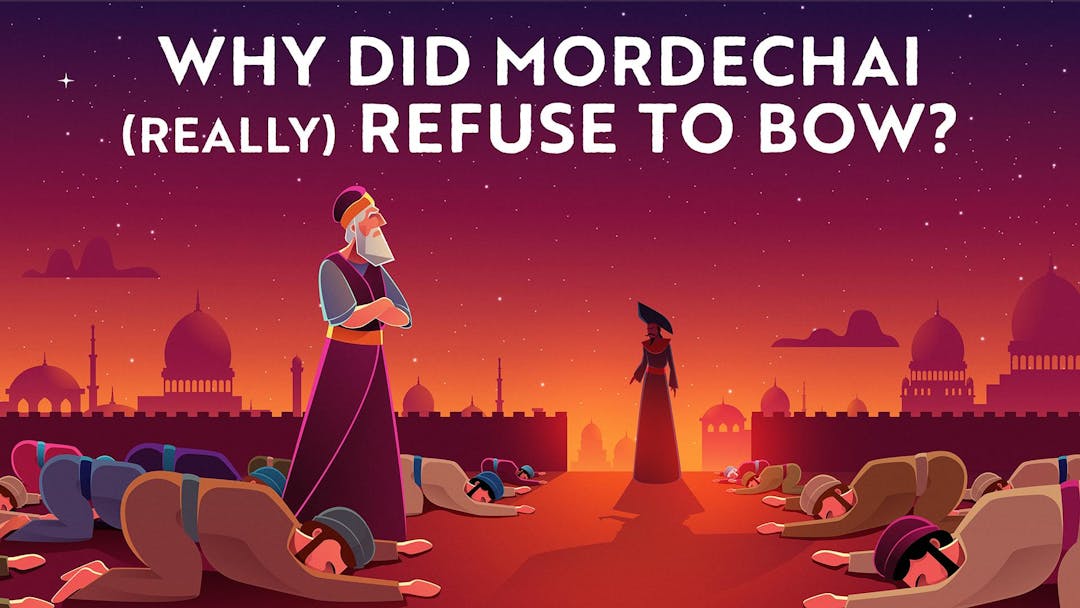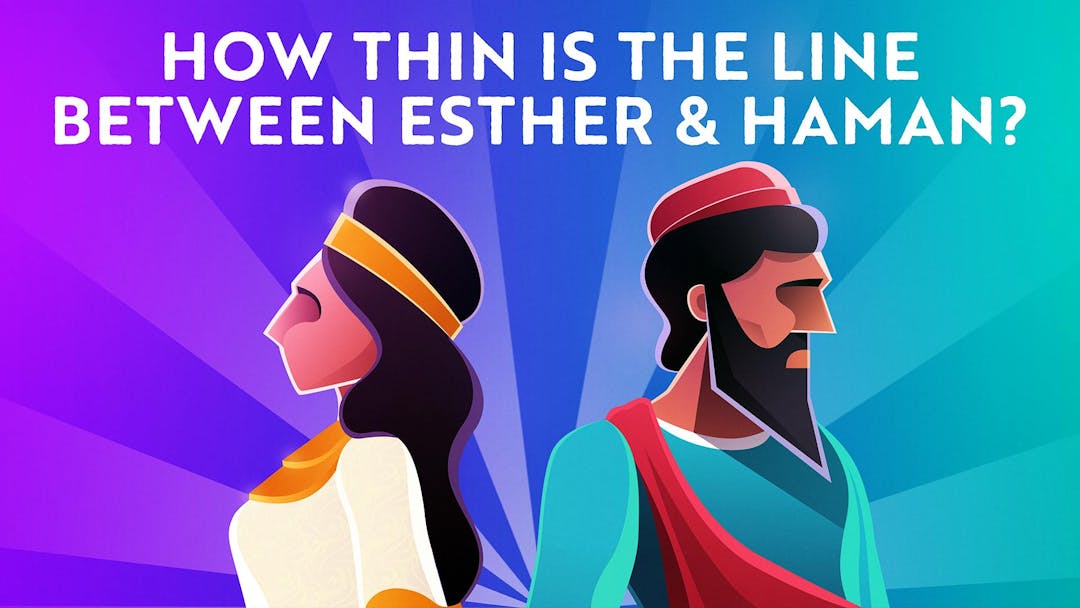Start your free trial today to unlock the full library and enjoy unlimited and uninterrupted access.
Get StartedThe Story of Haman In The Bible: Esther, Mordecai and Purim (Part 1 of 7)
Could You Become Haman? Understanding the Path to Darkness
We read the Megillah a bit like a child’s story, starting with the arch villain, Haman the Agagite. We often think of him as a caricature, an evil incarnate twirling his mustache, squinting his eyes, and doing evil things just for fun.
But is that really all there is to Haman? He’s just this flat, one-dimensional villain guy, evil through and through?
Allow us to challenge that idea, just a little. Think about the great villains in Western literature and culture: Darth Vader. Lord Voldemort. Hannibal Lecter. Professor Moriarty. These characters are complex, multi-dimensional. They have struggles. They’re real. So… wouldn’t we at least expect that much when reading about Haman on Purim?
When you read the Megillah with this lens, you open yourself up to an amazing story, one that is hiding just beneath the surface of the text. It’s the real story of Haman, of what motivated him, and what made him tick. And if you want to understand this book, this holiday, you’ve got to know its central villain.
Join Rabbi Fohrman as he examines this question by looking at the Book of Esther (and its mysterious connections to the Garden of Eden!) – and never think about Purim the same way again!
Check out other great purim videos at Aleph Beta, including The Meaning of Purim, The Queen You Thought You Knew and The Story of Mordechai.
Want to watch the full video for free?
Enter your email and we’ll send you a link to watch the full series free.
What is Aleph Beta?
Aleph Beta is a unique kind of Torah library. Led by our founder, Rabbi David Fohrman, we are dedicated to high-level, textual Torah learning for adults that is intellectually and spiritually sophisticated, that enlivens your Jewish practice and helps you forge a deeper connection to God. Whether you’ve been learning in yeshiva for years or you’re just beginning your Torah journey, you’re sure to find something meaningful and surprising waiting for you here.
Browse our library of over 1,000 beautifully produced animated videos, podcasts, deep dive courses, and printable guides. Topics include the weekly parsha, Jewish holidays & fast days, laws & mitzvot, prayers, relationships, big philosophical ideas and more. Have something to say at the Shabbos table that will amaze your family and guests and bring deep meaning into their lives.











